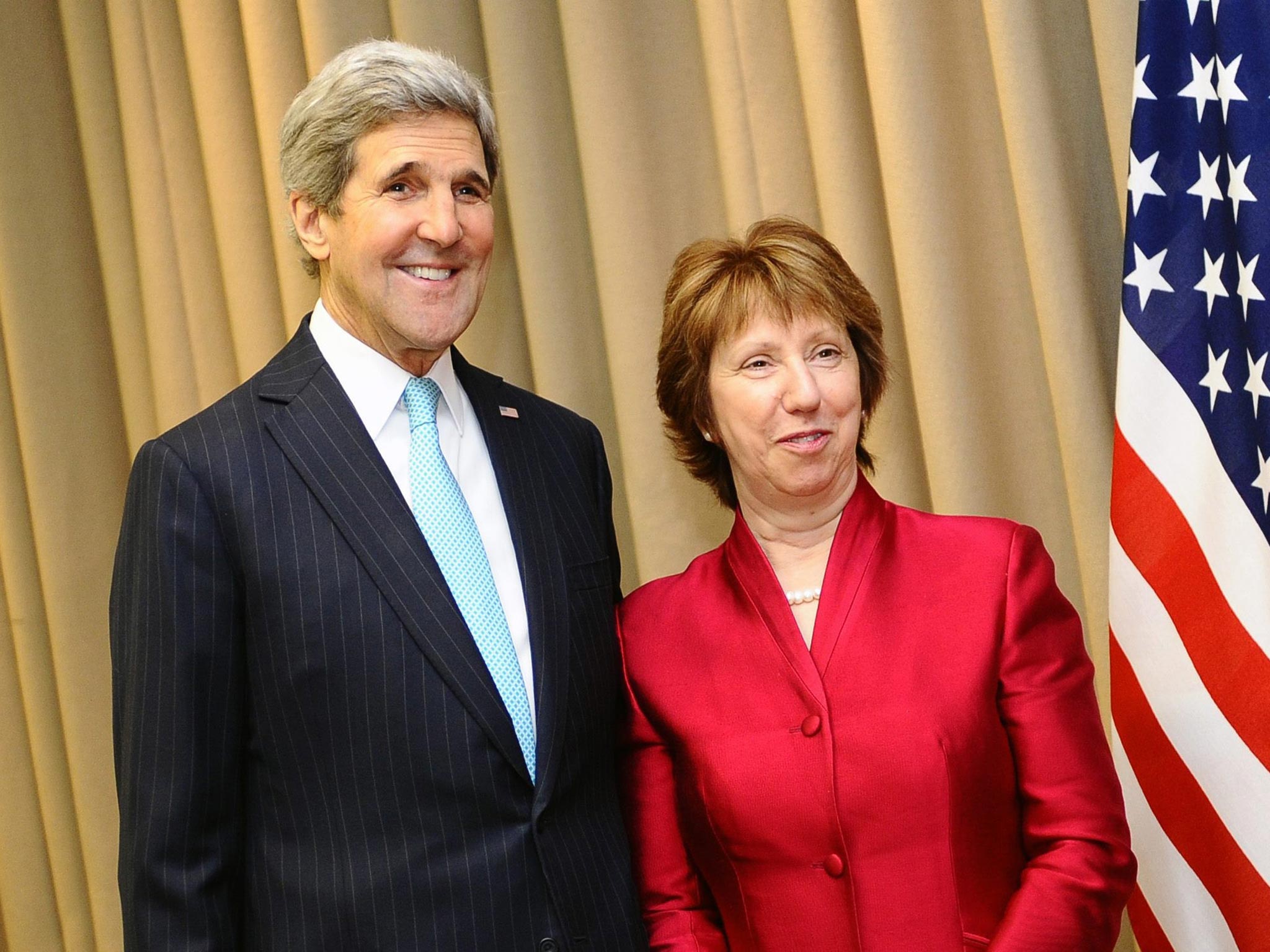Ukraine crisis: Foreign Ministers agree on steps to ease tensions as Vladimir Putin defends Russia's right to bear arms
A tentative deal between Moscow, Washington and Brussels to calm tensions has been struck. But the Russian President remains defiant – and dangerous

Your support helps us to tell the story
From reproductive rights to climate change to Big Tech, The Independent is on the ground when the story is developing. Whether it's investigating the financials of Elon Musk's pro-Trump PAC or producing our latest documentary, 'The A Word', which shines a light on the American women fighting for reproductive rights, we know how important it is to parse out the facts from the messaging.
At such a critical moment in US history, we need reporters on the ground. Your donation allows us to keep sending journalists to speak to both sides of the story.
The Independent is trusted by Americans across the entire political spectrum. And unlike many other quality news outlets, we choose not to lock Americans out of our reporting and analysis with paywalls. We believe quality journalism should be available to everyone, paid for by those who can afford it.
Your support makes all the difference.Russia, the United States and the European Union have announced a tentative deal to pull Ukraine back from the brink of a violent break up, but in a bullish statement just hours earlier President Vladimir Putin insisted he still had a right to send troops into the country.
Relations between Russia and the West are at their frostiest since the Cold War, with US and European politicians openly accusing Moscow of orchestrating the armed separatist uprisings breaking out across eastern Ukraine. All sides issued a joint statement calling on the groups to disarm, but the US was clear that the onus was on Russia to act quickly or face the debilitating economic sanctions they have been threatening for weeks.
“We fully expect the Russians to demonstrate their seriousness by insisting that the pro-Russian separatists they have been supporting lay down their arms, leave the buildings and pursue their political objectives through the constitutional processes,” the US Secretary of State, John Kerry, said in Geneva after a day of talks with his EU, Ukrainian and Russian counterparts. “If we’re not able to see progress on efforts to implement the principle of the agreement this weekend, then we will have no choice but to impose further costs on Russia.”
Mr Kerry also expressed concern about reports that Jewish people in one Ukrainian city had received notes asking them to identify themselves to pro-Russians. Local press reported leaflets being handed out around a synagogue in Donetsk in eastern Ukraine demanding that the city’s Jews provide a list of property they own and pay a registration fee “or else have their citizenship revoked”.
His Russian counterpart, Sergei Lavrov, commended the deal but denied any accusations that the Kremlin was behind the recent unrest. “We have no wish to insert our military forces into Ukraine,” he said. The ministers also agreed an amnesty for most of the separatist protesters and an increased role for a monitoring mission from the Organisation for Security and Co-operation in Europe.
The announcement came hours after Mr Putin’s annual question-and-answer session with the Russian public, in which he said he had the right to send troops into Ukraine and poured scorn on threats from the West to impose sanctions on Moscow.
There were also some conciliatory notes, with the President calling the Geneva negotiations “very important”. But his televised comments were laced with derision for European and American foreign policy. Mr Putin said claims that he was behind the unrest in Ukraine were “nonsense”, and reminded the world that Russian parliament had on 1 March authorised him to send troops into Ukraine if ethnic Russians were attacked.
“The Federation Council granted the President the right to use military force in Ukraine. I really hope that I do not have to exercise this right and that we are able to solve all today’s pressing issues via political and diplomatic means,” he said. “We must do everything to help these people [in eastern Ukraine] defend their rights and independently determine their own destiny.”
Asked about Transdniestria, a breakaway region of Moldova which Russia protects but has not tried to draw into its territory, Mr Putin said that “people should be allowed to determine their own destiny” – words that may concern some of Russia’s neighbours.
Nato members close to Russian borders have been calling for more military assistance in light of events in Crimea, which followed the ousting of the pro-Russian President, Viktor Yanukovych. The US also announced that it was sending non-lethal military support to the Ukrainian authorities.
Mr Putin was scathing of efforts so far to chastise Russia for the annexation of Crimea. Dozens of Russian and Ukrainian officials have been subjected to asset freezes and travel bans, and the EU and US have threatened to expand those lists or move on to the next stage of deeper economic sanctions if Russia does not make good on its promises.
Asked about the sanctions, Mr Putin said that the EU would not be able to manage without Russian gas. “They badly want to bite us, but their opportunities are limited,” he said. “If they try to punish us by putting us into a corner on our knees like naughty children, they will cut the branch they are sitting on.”
Join our commenting forum
Join thought-provoking conversations, follow other Independent readers and see their replies
Comments